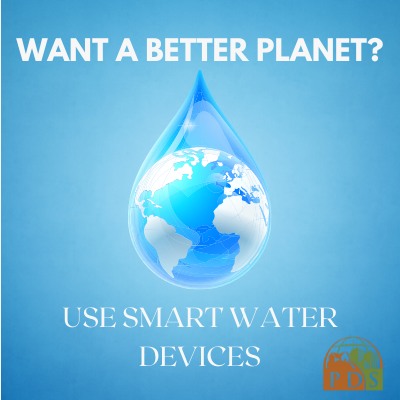
Why “Smart Water” Devices Are Best for Your HOA
Today, more than ever, smart irrigation controllers – or “smart water devices” – are necessary to maintain HOA landscapes as water conservation and saving money are the top concerns of homeowners and their associations.
What do smart water devices do?
They maintain watering schedules automatically to meet specific landscape needs. Simply stated, they take the guess work out of watering your landscape. Nearly two-thirds of residential water use occurs outdoors, yet much of that water is wasted due to over-watering. Many homeowners do not know how to adjust irrigation schedules to match water needs based on the season, nor have the time to deal with it.
What is the difference between a traditional system and smart irrigation controllers?
No matter how efficient a current irrigation system may seem, it doesn’t take into affect weather conditions that change sporadically. Specifically, we are talking about evaportranspiration (ET) and rainfall. ET is the amount of water the soil loses through evaporation in conjunction with the plant’s water loss, both of which are affected by changing weather conditions. Most traditional systems turn water and and off based on a time schedule that does not change with the weather and soil conditions, therefore plants are over-watered too much, for too long, which wastes water, money, and damages the plant.
How do smart water devices work?
Smart controllers use weather information and site and soil conditions to determine how much water to apply, and when to irrigate. Some controllers utilize historical weather data to compliment on-site weather conditions. Other controllers actually download ET values daily. Soil moisture sensor smart controllers also measure the amount of moisture already in the soil to determine irrigation schedules.
Once these systems are programmed, they usually require no additional monitoring and will water the landscape at peak effeciency times. The Irrigation Association has proved that smart irrigation controllers save up to 30% more water than traditional irrigation controllers. The Environmental Protection Agency now has selected these devices to be one of the first technologies endorsed by the EPA’s WaterSense program.
